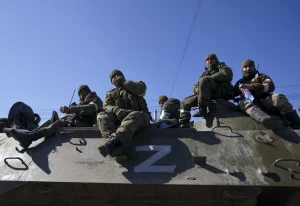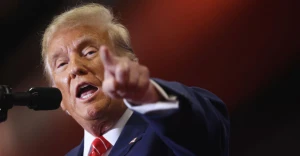
Victory components: strength of army, unity of support, commitment of allies
The scenario is changing rapidly, and not in Ukraine's favor. There are plenty of suggestions for improvements. But it's useful to look at the bigger picture, so that we can join forces in explaining and promoting these changes
All of this must be ensured by the government, because it is the government.
It can, of course, share powers and responsibilities - for this purpose, unity governments are formed in other countries. Or it can choose not to share, in which case it is responsible.
So let's assess the state of the components:
1. The strength of the army
The enemy continues to prevail in all types of resources. No way of qualitative superiority has been found.
Supply of troops ... "has numerous shortcomings" and requires volunteer support.
Exotic solutions of dubious effectiveness and low transparency are being invented for it and for the construction of, for example, fortifications.
Representatives of the President’s Office and the ruling party publicly attack the military leadership, while the court media blame the opposition... for this.
The world's leading media publish materials about the "conflict between the political and military leadership," and instead of an effective refutation, the president resorts to threatening the military leadership from the pages of a foreign tabloid.
Have you forgotten anything? Do you have anything to object to?
2. Unity of support
The restriction of the media on a political basis continues. A bacchanal of media assassinations against government opponents continues.
Hate campaigns against local governments are being conducted.
Civil society and whistleblower activists are being devalued.
The presidential office is generating rumors about holding "elections" - either in carcass or in effigy, in any way - to continue the government after the war.
Corruption scandals do not lead to substantive solutions to the problems identified.
Decisions in the parliament and local councils are not made by pro-Ukrainian consensus, but with the help of crutches - pro-Russian parties and oligarchic groups.
Is there anything to add? Corrections?
3. The commitment of allies
Conflicts with virtually all neighbors have been allowed to occur. There is no systematic mechanism for communicating Ukraine's position to the establishment and public of the allies.
Decisions on assistance from allies are increasingly conditioned by criteria and requirements, primarily regarding the democratic system in Ukraine and the fight against corruption.
Instead, Ukraine maintains a selective approach to allowing opponents to engage in international contacts, based on arbitrary criteria set by the President's Office.
The leader of the opposition is demonstratively not allowed to attend crucial international meetings.
Restrictions on freedom of speech not related to military needs remain in place (channels independent of the government are still excluded from digital broadcasting).
Is there any distortion? Is there anything wrong with what I said?
Conclusions
The set of cards in our hands has deteriorated significantly over the year. But war is not poker or preference. It is quite possible to find unexpected moves. If you look for them.
The situation may continue to develop according to one of the scenarios.
And the choice is entirely in the hands of the authorities:
I. Inertial
The government's course of action is to change nothing. Respond to internal (and external) criticism with emotions or repression.
Hope that the heroism of the Ukrainian Armed Forces and the sacrifices of Ukrainians will again move the establishment and/or society in the West and that aid will be dramatically increased, creating a technological advantage and allowing the enemy to be defeated.
The success of the scenario depends on too many factors beyond the control of anyone in Ukraine, including the government:
- whether the Armed Forces will have enough strength to fight "not because of, but in spite of";
- whether there will be enough resources to supply the Armed Forces, to fortify them, and to satisfy corrupt interests;
- whether the elections in key allies will change the position on Ukraine;
- whether there will be a new wave of admiration for Ukraine;
- whether the enemy will come up with its own ways to change the situation in its favor.
- Too much reliance on "what ifs" and "luck," no?
II. Separate
The government's move: through communication with the enemy, to reach the option of "reconciliation."
Here, there seem to be fewer factors beyond Ukraine's control, but they are more risky, and each one is about the existence of Ukraine:
- whether the enemy will agree to a peaceful settlement or consider such requests a signal of weakness and an invitation to finish the job;
- whether the allies will be willing to provide meaningful assistance in the negotiations;
- whether the conditions of "reconciliation" will not be such that they make resistance impossible in case of repeated aggression (see, for example, the history of the Moscow-Cossack negotiations of the XVII-XVIII centuries, leaks from the participants of the negotiations in Istanbul last March);
- will the separatist agreements be perceived as a "betrayal" that will provoke an internal conflict, Russian "peacekeepers" and the loss of statehood and/or subjectivity?
Aren't the risks too high? Or would anyone dare to say that there are none?
III. Quantum ("like a leap")
The government's move: maximizing the use of the country's internal capabilities to support the army and convince allies.
Much has been written, and I have written:
- a government of unity - focusing on the victory of all forces of society;
- development of production for Ukrainian and allied investments, mobilization of science, simplification of launching findings into a series;
- deployment of mobilization preparations and cooperation with citizens and communities in clear ways for everyone to participate in the defense of the state (from volunteering to voluntary service/working "on the sidelines");
- ongoing dialogue with foreign countries using the capabilities of politicians, business, civil society, diaspora, social media users, etc.
Here, all factors depend on Ukrainians. And such a system will be able to respond to unforeseen events in a flexible and timely manner, adjusting, leveling...
So far, everything is going according to the first scenario, with suspicion of the second.
The question to the Cassandra Institute is: how to force/convince/enlighten to switch to the third?
Is it an internal or external process?
About the author. Rostyslav Pavlenko, Ukrainian politician, political scientist, political strategist, teacher, former member of the Ukrainian parliament.
The editors don't always share the opinions expressed by the authors of the blogs.
- News











































